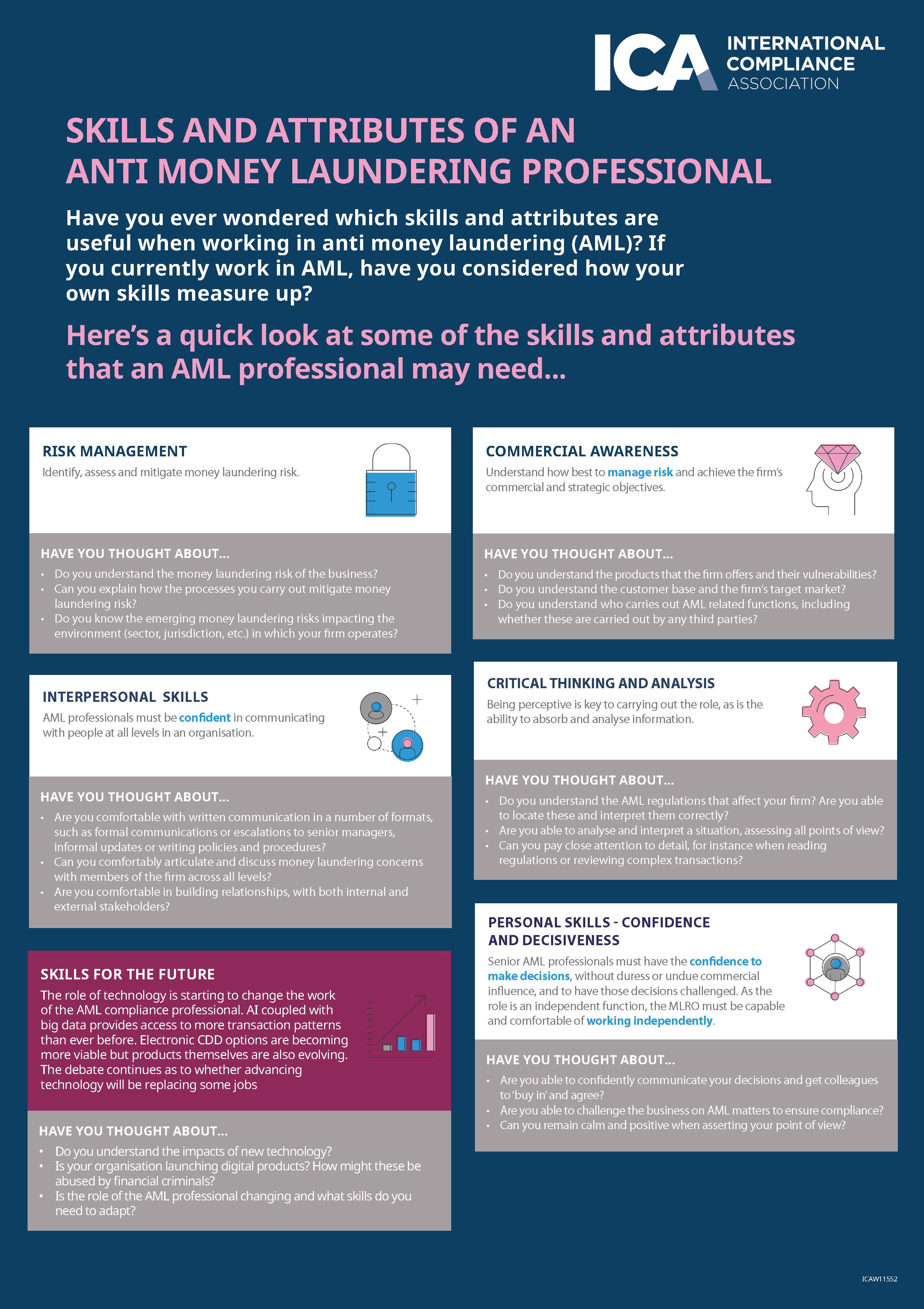
The ICA International Diploma in Anti Money Laundering is the industry standard for AML professionals, helping you gain and enhance the skills mentioned above.
Now open for enrolment (study online, anywhere in the world).
_________________________________________________________________
This article forms part of the #BigCompConvo - Join us as we explore and debate the latest challenges and issues facing you and regulatory and financial crime compliance professionals all over the world. If you’d like to contribute an article as part of the Big Compliance Conversation get in touch with us at contributions@int-comp.org


